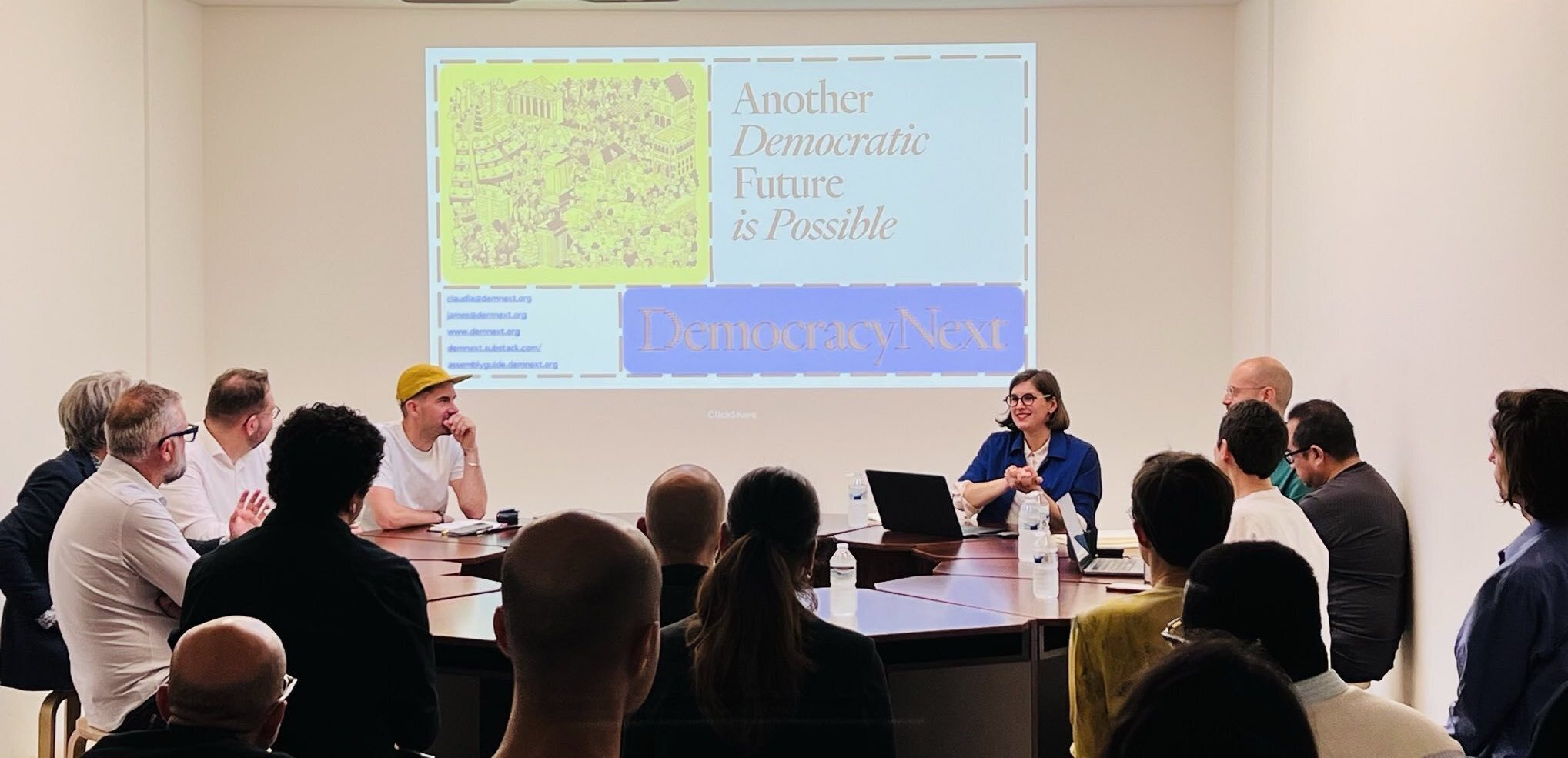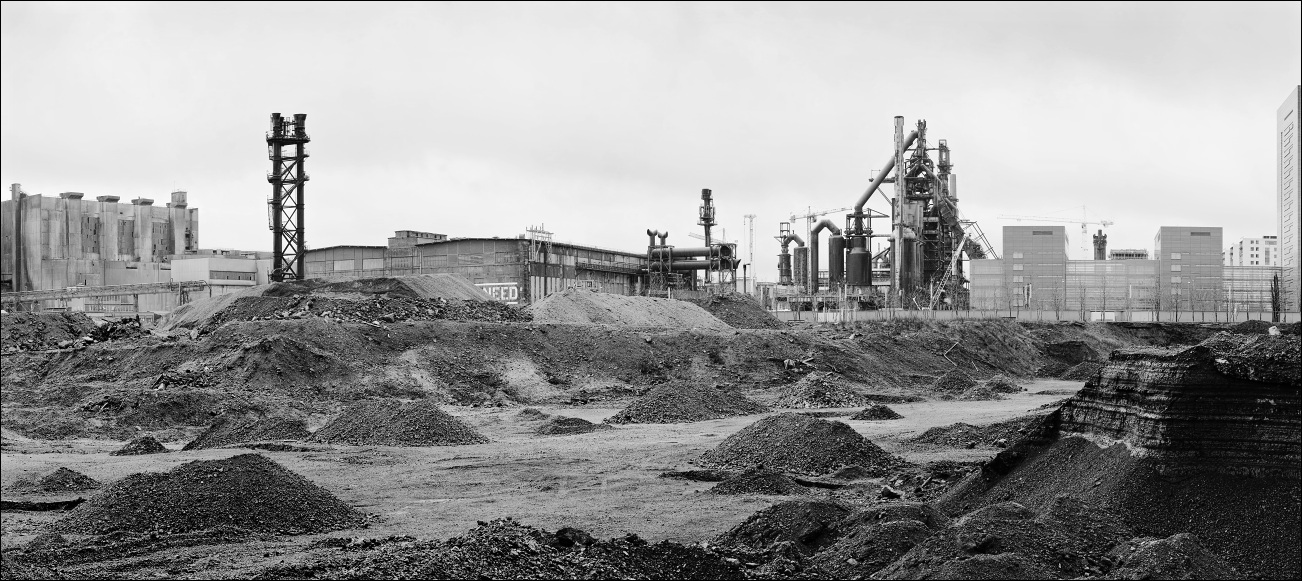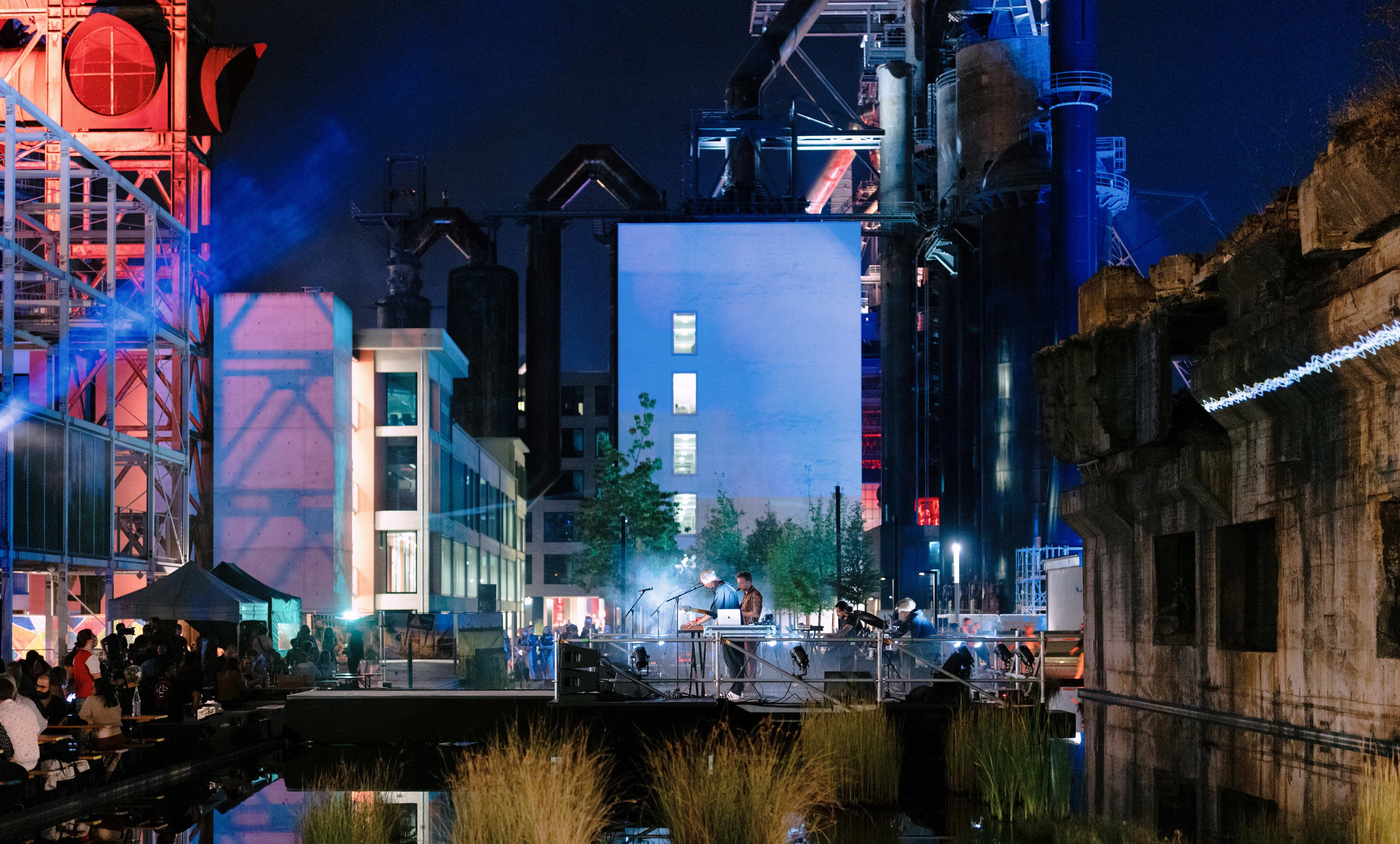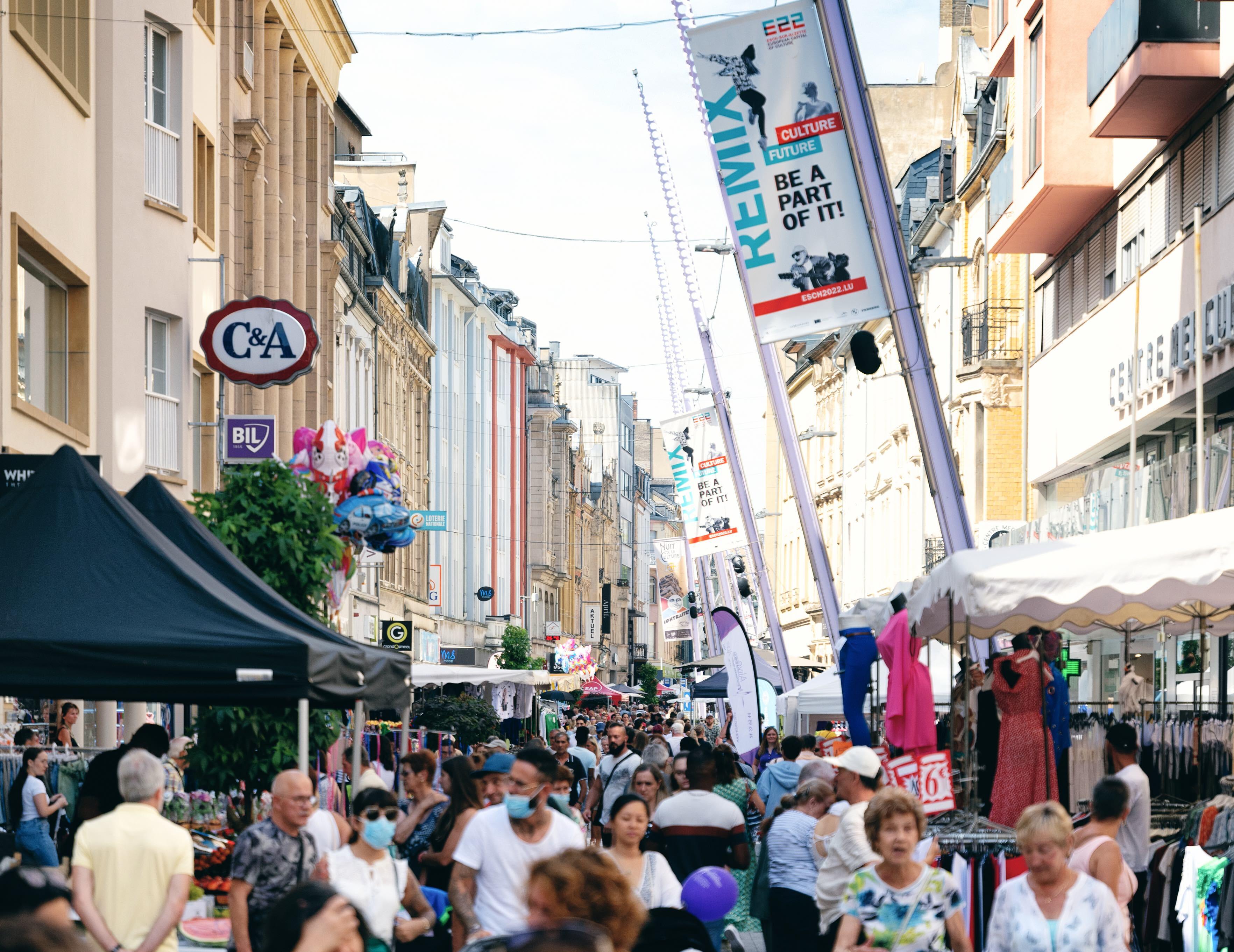“The collaboration we set up between DemocracyNext and the City of Esch presents one of the core strands of our research project The Esch Clinics, in which we investigate the intersection of urban commons, assembly, and spatial politics. We work towards a more socially just and livable city, especially considering the civic context of the socio-economic transition, the period towards carbon neutrality… We understand ourselves as embedded ‘proximity agents’ – field workers, who investigate, digest, and pass on information, and propose alternatives.”
In 2025, Esch will implement a Citizens’ Assembly to address a particular challenge about the future of the city. DemocracyNext will work with the city to determine what this will be. This will be the kind of issue that requires tapping into the collective intelligence of people living in the city to work together and find common ground on recommendations. The intention is to learn from this first experience to institutionalise Citizens’ Assemblies and make them a part of Esch’s expanded democratic structure.
This two-year-long collaboration between Cultures of Assembly and DemocracyNext will run in parallel and in close proximity to the forthcoming research project, ‘The Esch Clinics’ (starting in September 2024), devised and conducted by the Chair of the City of Esch. The collaboration will focus on the implementation of a series of citizen assemblies in Esch-sur-Alzette that will produce a local base narrative and complement the activities and initiatives of The Esch Clinics to investigate questions around urban commons and innovative democratic urban governance.

October 2024 - January 2025: All cities in the cohort will follow a 9 module Citizens' Assembly Learning Programme to build their knowledge and capacity to deliver an assembly in their context.
Early 2025: DemocracyNext will run an assembly design workshop to discuss and decide on the specific elements for the whole process (sortition, framing the question, number of assembly members etc.).
2025: The assembly will take place some point in 2025.
“The history of the city of Esch-sur-Alzette has been written by its citizens; therefore it seems essential to implicate them further in its future development. A lively democracy, representing the people, requires the active participation of most, if not all, citizens. I’m confident that the collaboration between the City of Esch-sur-Alzette and DemocracyNext will open new perspectives through the voices of the people, forging the path towards a local decision-making process guided by the needs and expectations of the citizens.”
Collaborators: Ville d’Esch-sur-Alzette & Cultures of Assembly
Country: Luxembourg Population: 36.000
As Luxembourg’s second largest city, Esch-sur-Alzette’s history is closely tied to the steel industry, which was the primary driver of its growth and development in the 19th and 20th centuries. The decline of the steel industry in the late 20th century led to significant economic and social changes. Today, Esch-sur-Alzette is a diverse city with a significant proportion of its population consisting of immigrants, reflecting its industrial past which attracted workers from various countries. While Luxembourgish, French, and German are the official languages of Luxembourg, Portuguese is also widely spoken. This is largely due to the industrial past of the city which attracted many Portuguese migrants to Luxembourg from the 1970’s onwards.

More recently, the city has undergone significant urban redevelopment, particularly in the Belval area (one of former centres of steel production in Luxembourg), transforming former industrial sites into modern urban spaces including the main campus for the University of Luxembourg.

Hundreds of thousands of French, Belgian, and German cross-border commuters travel to Luxembourg for work every day - including to Esch-sur-Alzette. This is partly to do with the high cost of living in the country and the need for more housing options as well as the ease of access to employment centres from the border regions of neighbouring countries.

Stay tuned!
Make sure to check back here for updates as we continue this collaboration with Esch-sur-Alzette.
← Back to Cities ProgrammeExplore...
→ The Cities Programme in Vilnius, Lithuania